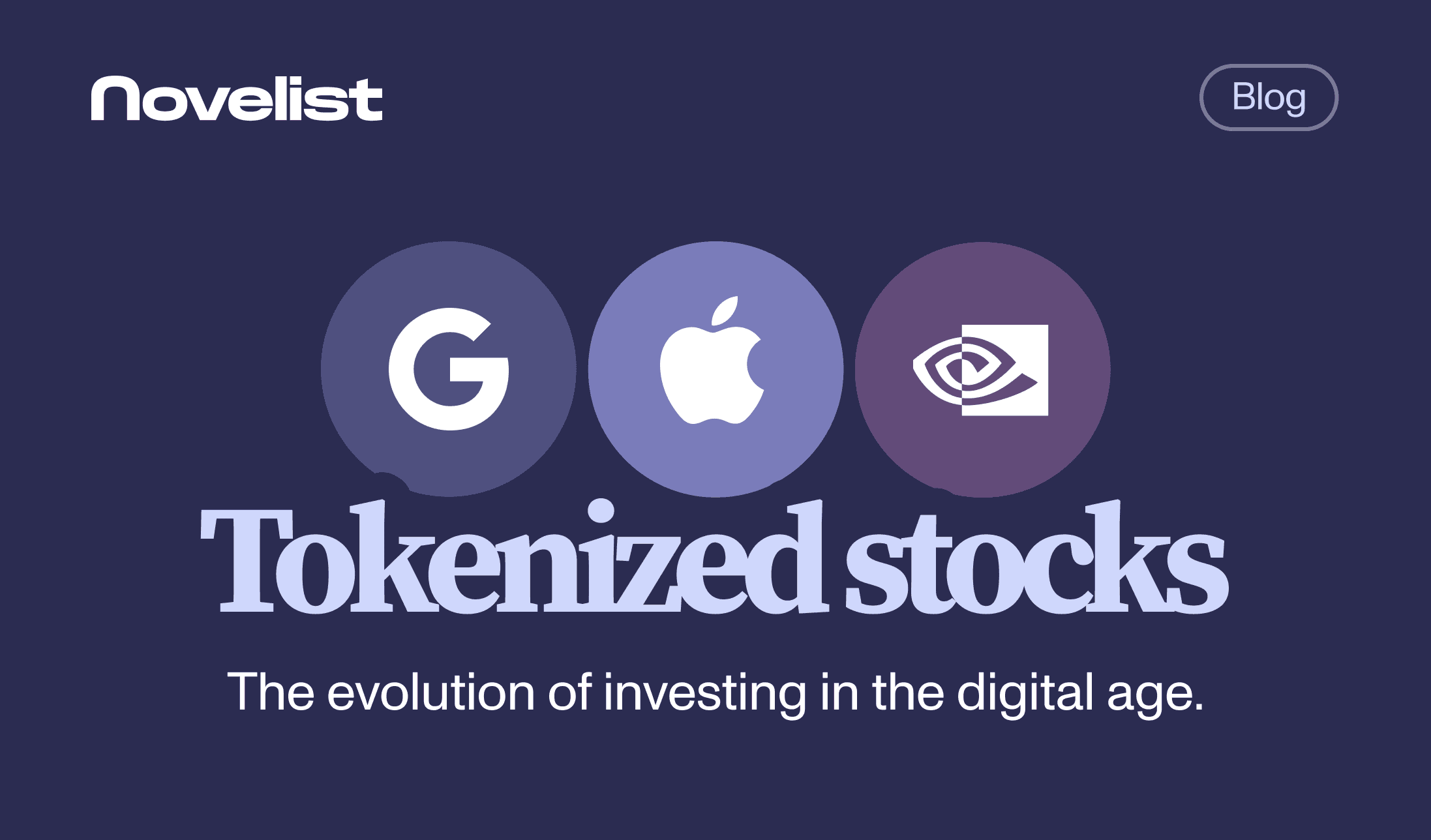Updated on July 21, 2025
Tokenized Stocks: The evolution of investing in the digital age.

The financial sector is once again at a turning point. After the rise of online brokers, zero-commission trading, and crypto, the next big shift is taking shape: tokenized stocks. Major players like Robinhood, BlackRock, and Deutsche Bank are going all-in. But what exactly are tokenized stocks? And why are they not just hype, but the foundation of future investing?
What are tokenized stocks?
A tokenized stock is a digital representation of a traditional stock, issued on a blockchain. Instead of being recorded in the backend of a brokerage account, your share becomes a cryptographic token that represents the same rights: ownership, dividends, voting power. The goal is to make stocks accessible through the infrastructure of the internet.
How does it work today?
Today, investing still mostly runs through centralized parties like brokers, custodians, and clearing houses. Orders are processed at fixed times, and ownership is recorded by intermediaries. Settlement often takes two days (T+2). The underlying infrastructure was literally built on systems from the last century.
Tokenized stocks change that. They’re traded 24/7, settled instantly (real-time settlement), and stored in a digital wallet. No waiting, no extra layers, everything runs on a programmable blockchain layer.
What are the benefits?
The benefits are fundamental:
- Faster and cheaper transactions: No delays or costly middlemen.
- Accessibility and liquidity: Anyone with internet can participate, regardless of location or bank account.
- Fractional ownership: You can buy just a fraction of a share, lowering the barrier to entry.
- Automation: Dividends and voting rights can be automatically distributed via smart contracts.
- Transparency: Transactions and ownership are publicly verifiable on-chain.
For investors, this means more accessibility, lower costs, and a smoother experience. For institutions, it means more efficient markets and reduced operational risks.
Why is Wall Street suddenly so enthusiastic?
Robinhood, Kraken, and Gemini are already experimenting with tokenized stocks for retail clients. Meanwhile, heavyweights like BlackRock and Citi Group openly write about “the future of markets on blockchain rails.” Why? Because it makes sense. The old infrastructure is slow and expensive. The new one is faster, more efficient, and built for a digital-first generation.
BlackRock calls it “the logical evolution of financial markets.” CEO Larry Fink believes that nearly everything, stocks, bonds, real estate, will eventually live on the blockchain. Tokenization, he says, brings more transparency, less risk, and better functioning markets.
The next phase of investing
Tokenized stocks aren’t just a product innovation. They’re part of a much bigger shift: the digitization of the underlying financial infrastructure.
We already live in a world where content, communication, contracts, and money are digital. Tokenized stocks are the missing link to make capital markets fully digital too. It’s not a revolution overnight, but a gradual migration, and it has already begun.
If you want to invest with the future in mind, don’t just look at returns. Look at where the infrastructure is heading. Tokenization isn’t a passing trend, it’s a logical step toward a digital economy.